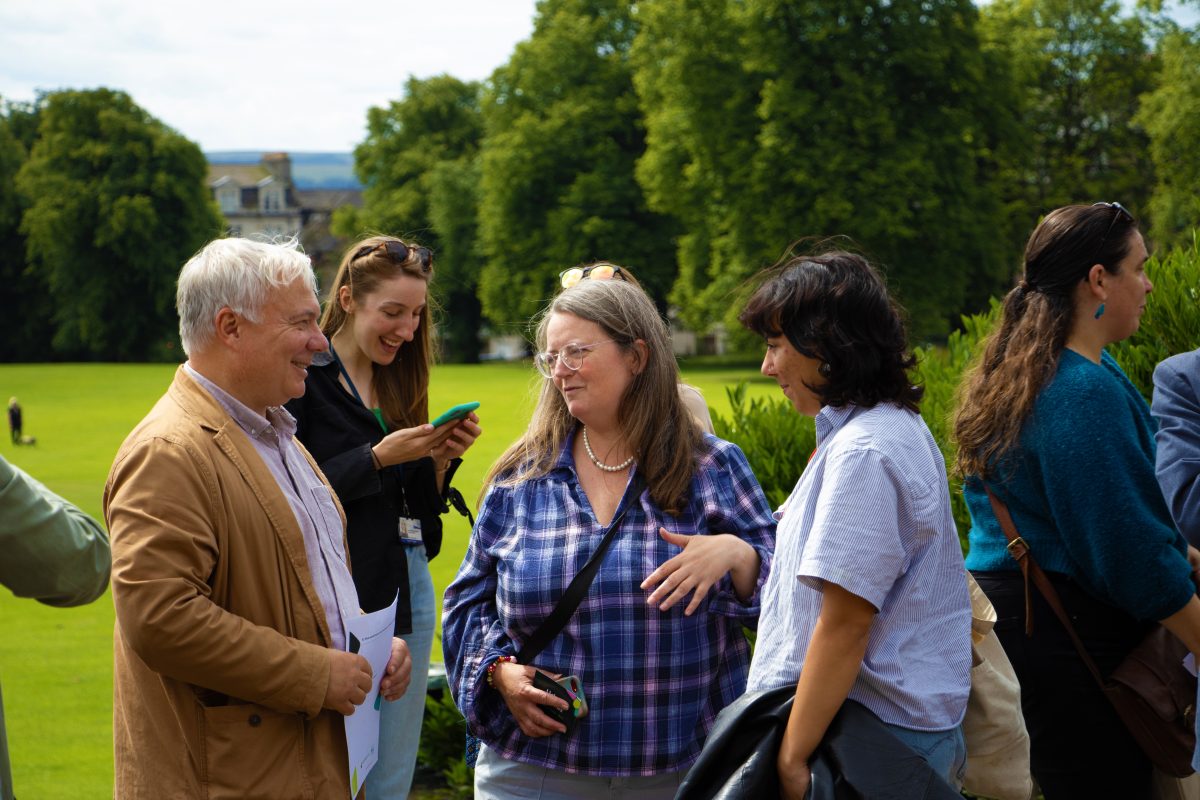As we move into the second year of citizen data gathering, we reflect on the inspiring achievements of our six cities: Cascais, Mannheim, Utrecht, Dundee, Riga and Athens. Through citizen science, community engagement and collaborative data collection, these cities are helping shape greener, more resilient urban environments.
Cascais – A Future-Proof Urban Park
In Cascais, more than 1,400 residents took part in a city-wide survey on thermal comfort in greenspaces, contributing 1,498 data points, 58% of which came from female respondents. Seventy volunteers assessed seven parks, including Quinta da Carreira Urban Park. These insights are already guiding local greenspace planning. Looking ahead, mobile sensors will be deployed in 2025 to monitor heat stress, helping to identify vulnerable areas and safeguard public health.
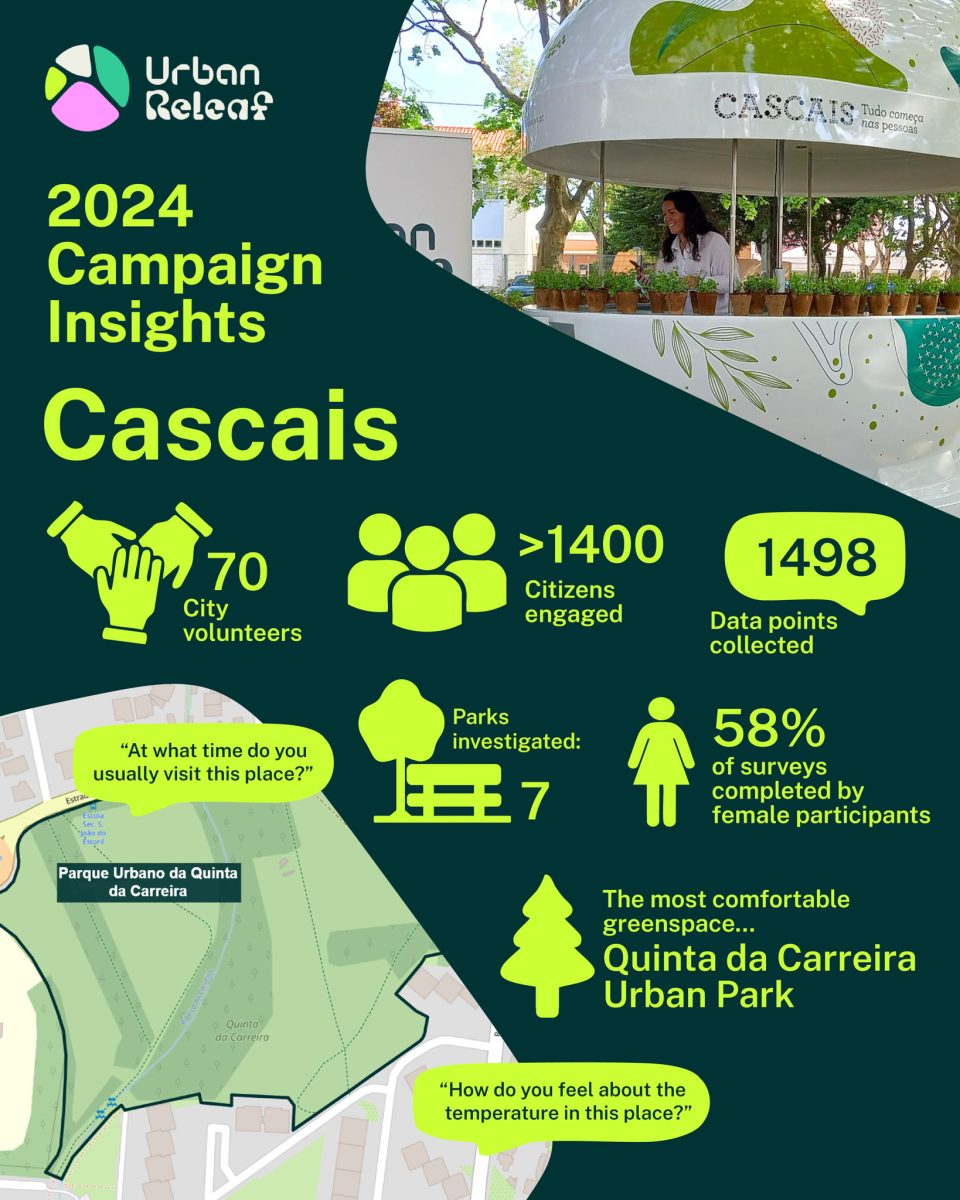
Mannheim – Mapping Trees and Heat Stress
Mannheim launched a public tree registry enriched with citizen-contributed data, supporting more effective urban tree management. In 2024, 96 citizens participated in workshops and helped map 71,133 trees, alongside more than 250 data points submitted via the co-developed “Mannheims Bäume” app. In the next phase, older residents will contribute to mapping perceptions of heat stress across green and built-up areas.
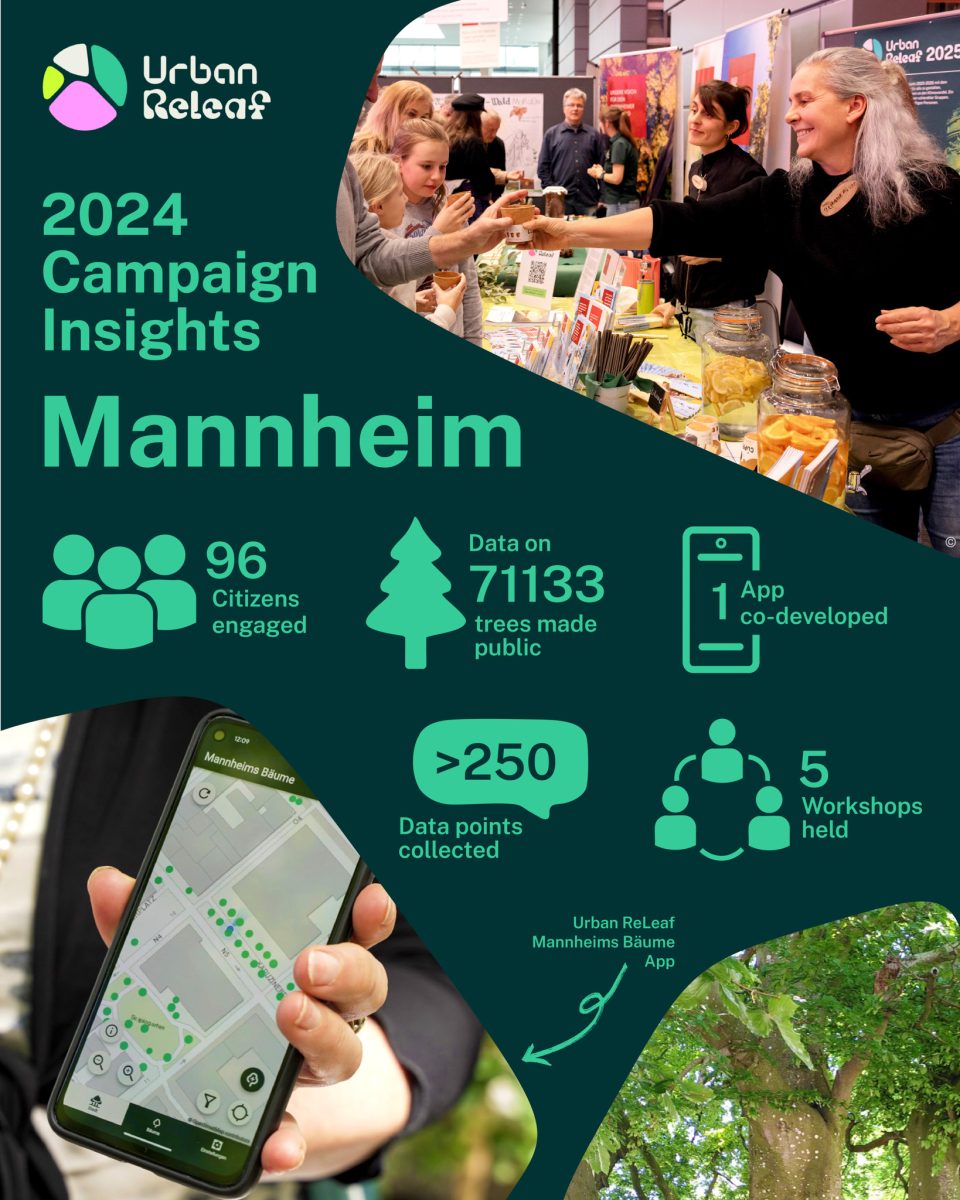
Utrecht – Greener Neighbourhoods, Cooler Cities
Utrecht’s “Green Neighbourhood, Cool Neighbourhood” campaign engaged 325 residents from Kanaleneiland, Rivierenwijk, Ondiep and Zuilen to collect temperature and humidity data using 120 mobile sensors. With over 60,000 data points gathered through 14 workshops, the campaign has boosted climate awareness and action. This data now feeds into Utrecht’s Digital Twin to support informed climate adaptation.
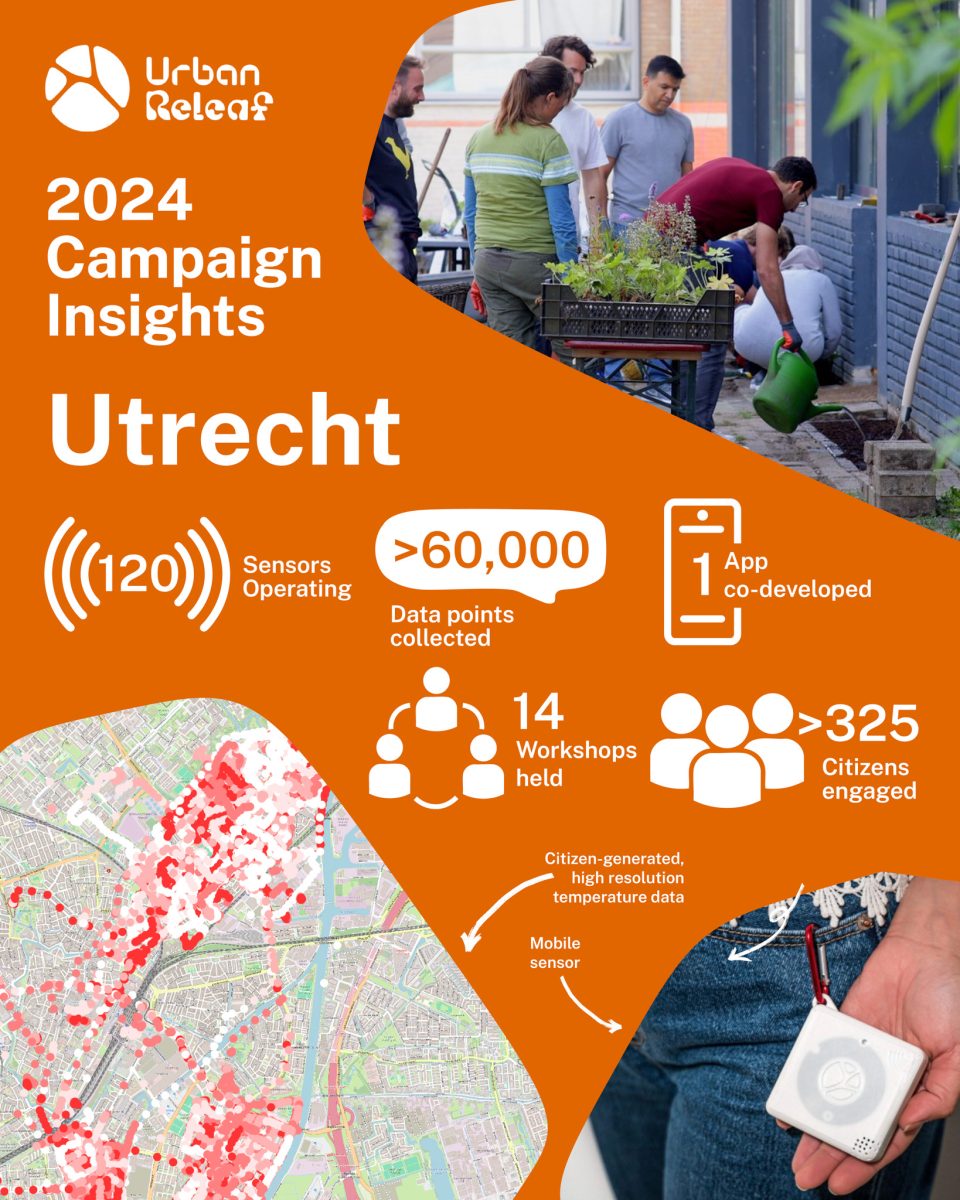
Dundee – Collaborative Shaping of Inclusive Greenspaces
In Dundee, 100 citizens shared their experiences of local greenspaces, providing over 1,250 data points that are informing four key urban policies. The average participant age was between 45 and 54. The co-developed Urban ReLeaf Cities greenspace perceptions app along with community activities, have supported inclusive data collection. In 2025, community groups are helping to map urban temperature profiles to ensure greenspaces are both accessible and climate resilient.
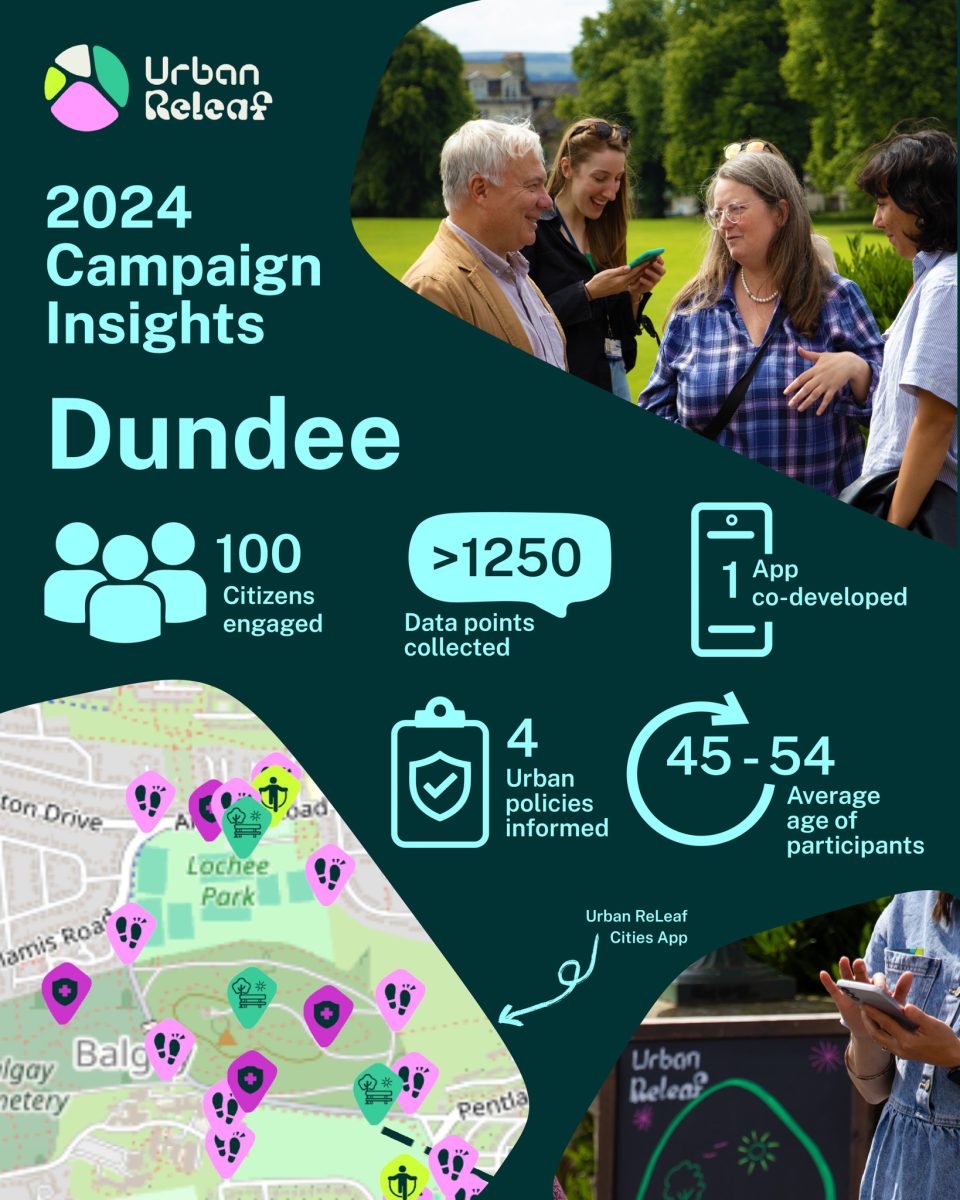
Riga – Citizen Science for Cleaner Air
Riga’s “Adopt a Sensor” campaign placed air quality monitors at 20 locations, including parks, homes, schools and NGOs, engaging over 40 citizens. More than 87,400 data points have been collected and are contributing to three strategic urban policies. In 2025, citizen-led temperature monitoring will be added to the campaign to further tackle urban heat island effects.
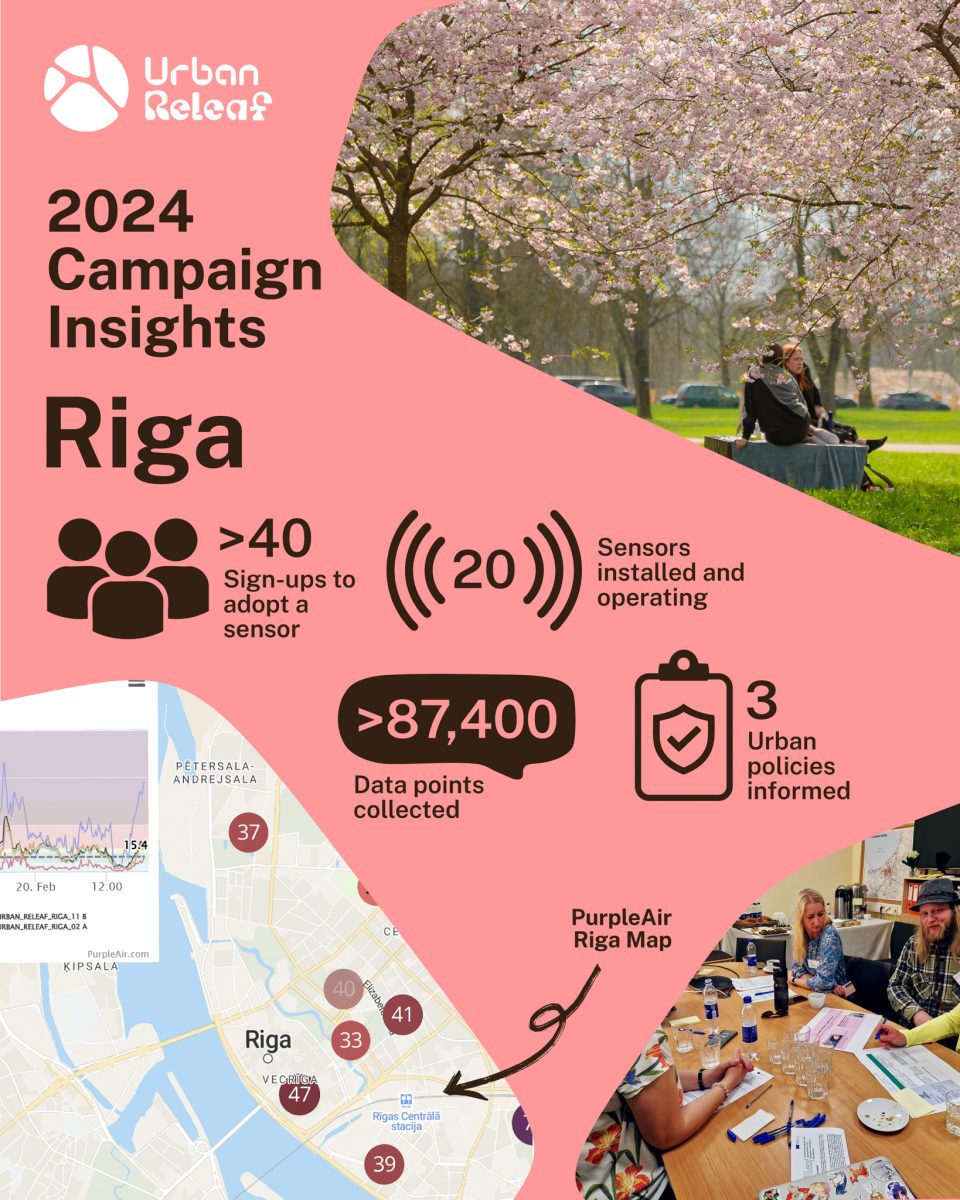
Looking Ahead
Our first year of campaigns have shown how citizen science can meaningfully contribute to urban planning, environmental protection, and public health. The Urban ReLeaf pilot cities will continue strive for more inclusive, data-informed and sustainable urban futures. Our 2025 activities will bring the Athens campaign fully on board, promising even richer insights and community-driven action.
A huge thank you to everyone who has contributed to Urban ReLeaf, your involvement means a great deal to the team.
Learn more about each city’s campaign:
For more information on Cascais’ project, please email: clima@cascaisambiente.pt
